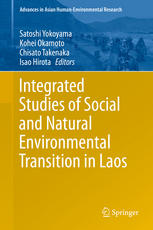

Most ebook files are in PDF format, so you can easily read them using various software such as Foxit Reader or directly on the Google Chrome browser.
Some ebook files are released by publishers in other formats such as .awz, .mobi, .epub, .fb2, etc. You may need to install specific software to read these formats on mobile/PC, such as Calibre.
Please read the tutorial at this link: https://ebookbell.com/faq
We offer FREE conversion to the popular formats you request; however, this may take some time. Therefore, right after payment, please email us, and we will try to provide the service as quickly as possible.
For some exceptional file formats or broken links (if any), please refrain from opening any disputes. Instead, email us first, and we will try to assist within a maximum of 6 hours.
EbookBell Team

4.3
68 reviewsThis book examines social and natural environmental changes in present-day Laos and presents a new research framework for environmental studies from an interdisciplinary point of view. In Laos, after the Lao version of perestroika, Chintanakaan Mai, in 1986, for better or worse, rural development and urbanization have progressed, and people’s livelihoods are about to change significantly. Compared to those of the neighboring countries of mainland Southeast Asia, however, many traditional livelihoods such as region-specific/ethnic-specific livelihood complexes, which combined traditional rice farming with a variety of subsistence activities, have been carried over into the present in Laos. The biggest challenge this book presents is to elucidate livelihood strategies of people who cope successfully with both social and environmental changes and to illustrate how to maintain this rich social and natural environment of Laos in the future. The book includes chapters on social, cultural, and natural concerns and on ethnicity, urbanization, and regional development in Laos. All chapters are based on original data from field surveys. These data will greatly contribute not only to local studies in Laos but also to environmental studies in developing countries.